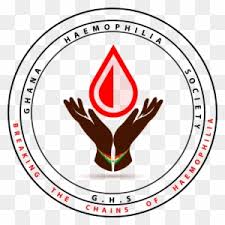Haemophilia, a bleeding disorder characterized by the inability of blood to clot effectively, poses a significant public health challenge in Ghana. Current estimates suggest approximately 7,131 individuals in Ghana live with this condition, representing about 8% of the total cases reported across Africa. This figure, however, starkly contrasts with the significantly lower number of officially diagnosed cases, which stands at only 525. This disparity highlights a critical gap in diagnosis and access to proper care, leaving thousands potentially unaware of their condition and vulnerable to its complications. This lack of awareness is particularly concerning given the potential severity of haemophilia, which can lead to prolonged and excessive bleeding, even from minor injuries, and can have life-threatening consequences if left untreated. Addressing this diagnostic gap is crucial to ensuring that individuals receive timely and appropriate medical attention, thereby improving their quality of life and preventing potentially fatal outcomes.
The 2025 World Haemophilia Day, observed annually on April 17th, serves as a crucial platform for raising global awareness about inherited bleeding disorders. This year’s theme, “Women and Girls Bleed Too,” aims to dispel the pervasive misconception that these disorders exclusively affect males. While haemophilia is more common in males, women can also be significantly impacted, either as carriers of the haemophilia gene or through other inherited bleeding disorders like von Willebrand Disease (vWD). Many women experience symptoms such as heavy and prolonged menstrual bleeding, excessive bleeding during childbirth or surgical procedures, and unexplained bruising. These symptoms, often dismissed as normal or attributed to other causes, can significantly impact their quality of life, leading to anemia, pain, and other health complications. Increasing awareness and understanding of bleeding disorders in women is critical for prompting accurate diagnosis and ensuring access to appropriate management and support.
The underdiagnosis of bleeding disorders in women and girls stems from several factors, including limited awareness among healthcare professionals and the general public, the normalization of heavy menstrual bleeding, and the misattribution of symptoms to other conditions. Many women are told that heavy periods are simply part of being female, leading to delayed or missed diagnoses. This lack of recognition can have serious consequences, as untreated bleeding disorders can lead to chronic health issues and even life-threatening complications. It is imperative that healthcare providers receive adequate training to recognize and diagnose bleeding disorders in women and girls, and that societal perceptions of menstruation shift to acknowledge the possibility of underlying medical conditions contributing to heavy bleeding.
Globally, bleeding disorders affect an estimated 390,630 individuals, with varying distributions across different types of disorders. Haemophilia accounts for the majority of cases, comprising 56% of the global population with bleeding disorders, while von Willebrand Disease (vWD) represents 26%, and other types of bleeding disorders constitute the remaining 18%. The gender distribution reveals a predominance in males, accounting for 65% of cases, while females represent 34%. This data highlights the global burden of these conditions and underscores the need for improved diagnostics, treatment, and support systems worldwide. Further research is needed to better understand the prevalence and specific challenges faced by individuals with different types of bleeding disorders, including those less common than haemophilia.
In Ghana, the significantly low diagnosis rate of haemophilia, coupled with the estimated prevalence, emphasizes the urgent need for increased awareness, improved diagnostic capabilities, and enhanced access to treatment and support services. Efforts must be made to educate both healthcare professionals and the public about the signs and symptoms of bleeding disorders in both men and women. This includes challenging the societal normalization of heavy menstrual bleeding and promoting the importance of seeking medical attention for any unusual bleeding patterns. Furthermore, investing in diagnostic capacity and ensuring access to affordable treatment options, including clotting factor replacement therapy where appropriate, is crucial for improving the lives of individuals living with these conditions.
The ongoing efforts of organizations like the Haemophilia Society of Ghana are instrumental in addressing these challenges. Through advocacy and education, they work towards raising awareness, improving diagnostic capacity, and ensuring access to treatment and support services for individuals with bleeding disorders. Continued support for these organizations, coupled with government initiatives to strengthen healthcare infrastructure and implement comprehensive management programs, is vital for effectively addressing the burden of bleeding disorders in Ghana and globally. By working collaboratively, healthcare professionals, patient advocacy groups, and policymakers can strive towards a future where all individuals with bleeding disorders receive timely diagnosis, appropriate treatment, and the support they need to live full and healthy lives.














